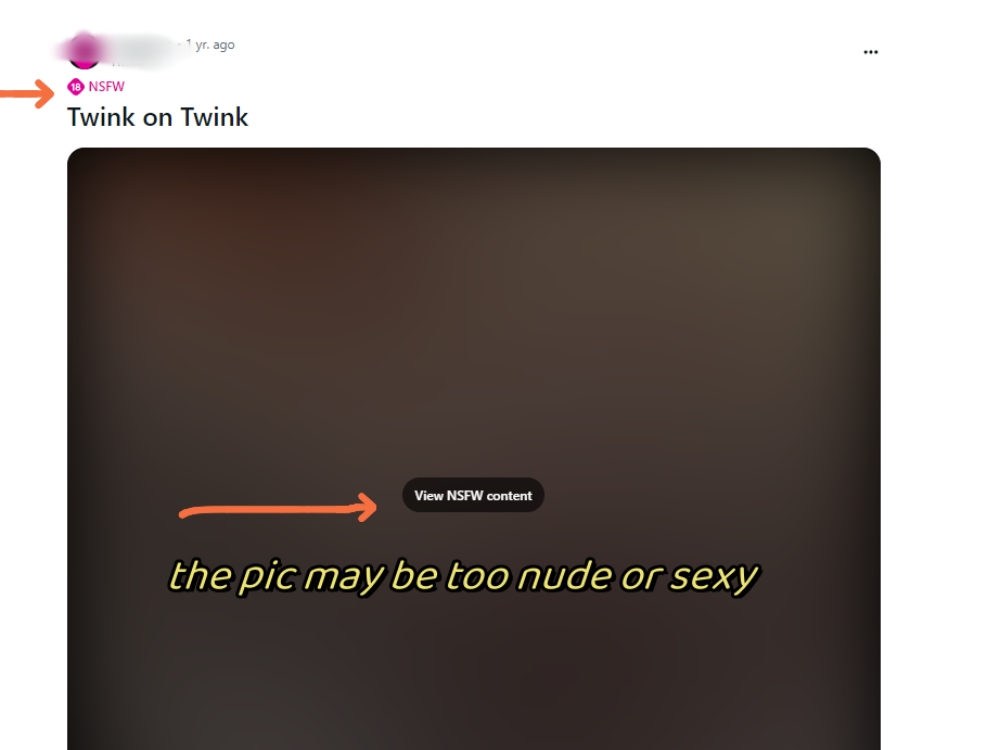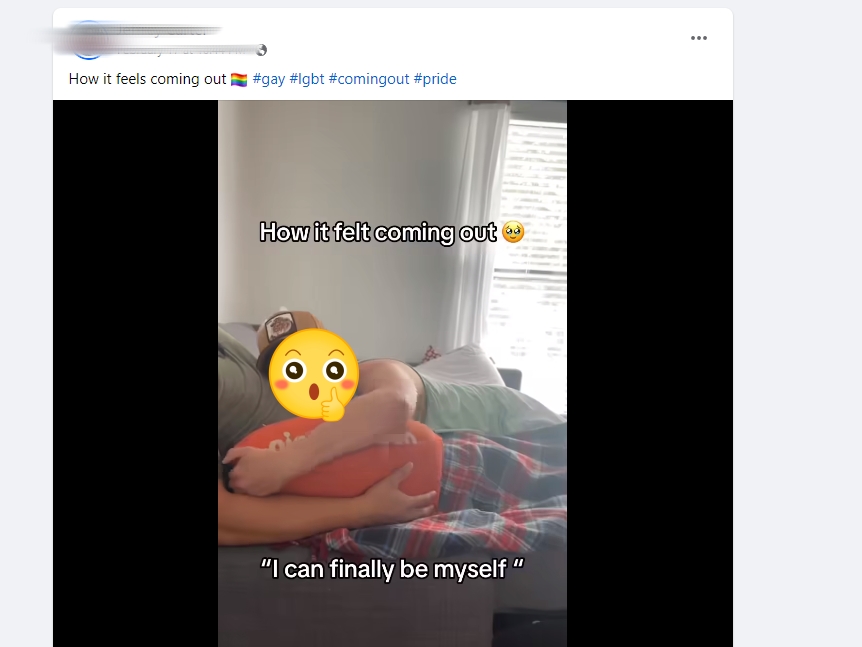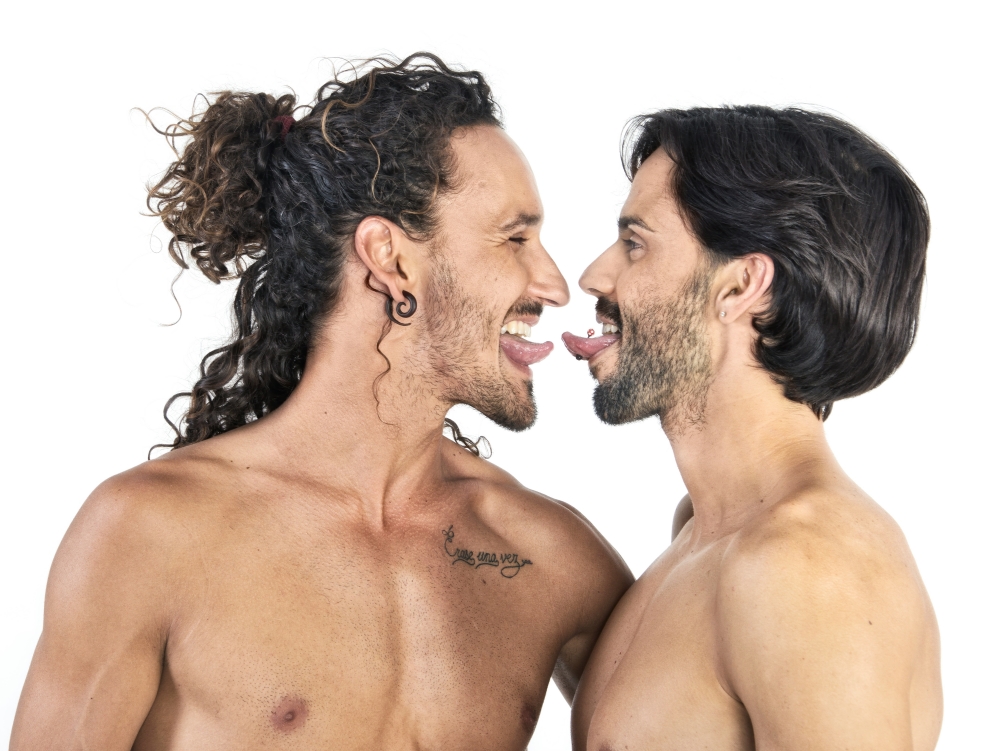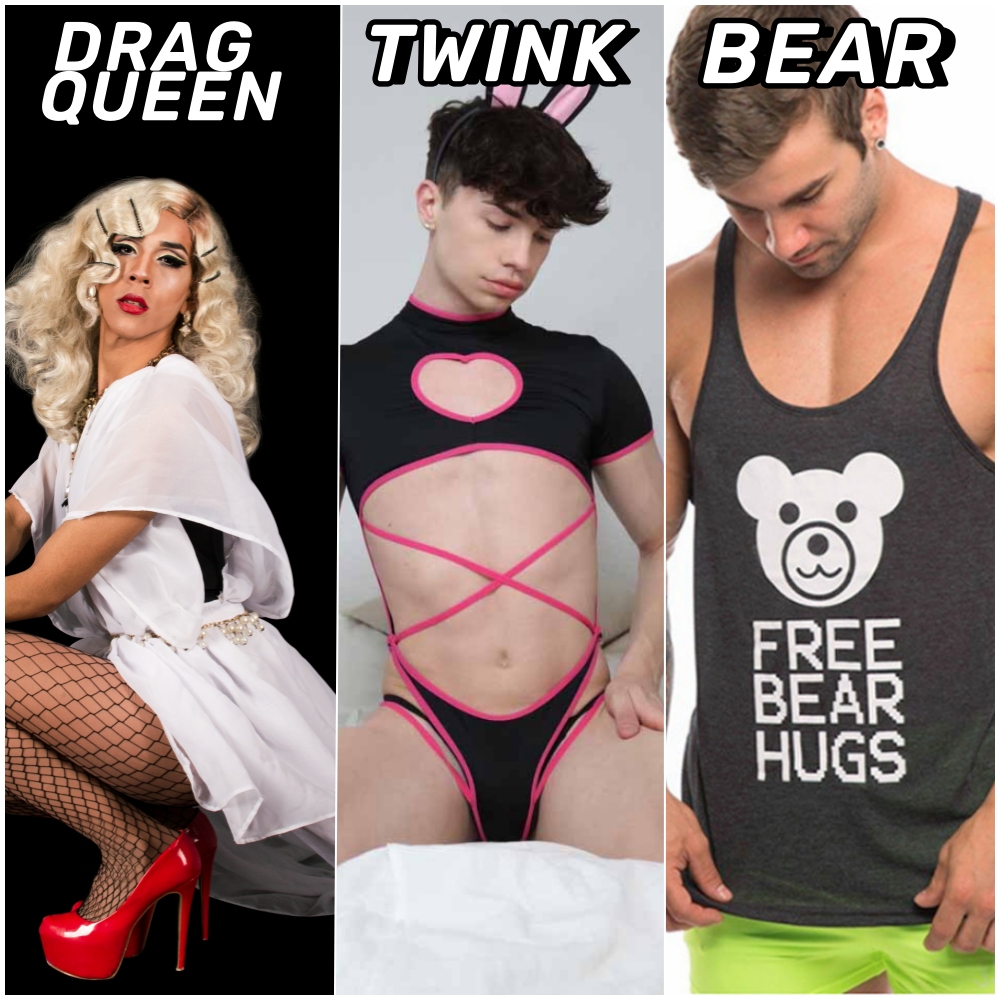In the vibrant tapestry of LGBTQ+ culture, language serves as both a mirror and a beacon, reflecting the diverse experiences and identities of the community while also guiding individuals on their journey of self-discovery and expression.
At the heart of this linguistic landscape lies gay slang, a colorful and dynamic lexicon that encapsulates the creativity, resilience, and shared experiences of LGBTQ+ individuals. As we delve into the intricacies of gay slang, we embark on a journey of exploration and understanding, unraveling the meanings behind the words and phrases that have shaped LGBTQ+ culture and identity.
Understanding Gay Slang
Gay slang, also known as LGBTQ+ slang or queer slang, refers to a specialized lexicon of words and phrases used primarily within the LGBTQ+ community. These terms often hold specific meanings and connotations that may not be immediately apparent to those outside the community.
Origins of Gay Slang
The origins of gay slang can be traced back to various subcultures within the LGBTQ+ community, including drag culture, ballroom culture, and underground gay bars and clubs. These communities developed their own unique language as a form of self-expression, identity, and solidarity in the face of discrimination and marginalization.
Evolution of Gay Slang Over Time
Gay slang has evolved significantly over time, reflecting changes in LGBTQ+ culture, identity, and social norms. While certain expressions have remained unchanged, others have become obsolete or acquired fresh interpretations. Moreover, the extensive utilization of social media and the internet has accelerated the swift dissemination and acceptance of gay vernacular worldwide.
Common Gay Slang Terms
Bear
A term used to describe a gay man who is typically larger, hairy, and masculine in appearance. Bears often embrace their rugged and burly aesthetic as a form of pride and identity within the LGBTQ+ community.
Twink
A slang term referring to a young, slim, and typically effeminate gay man. Twinks are often characterized by their youthful appearance and lack of body hair. The term may carry both positive and negative connotations, depending on the context.
Otter
Similar to a bear, an otter is a gay man who is typically lean, hairy, and athletic in appearance. Otters are often seen as a middle ground between bears and twinks, embodying a balance of masculinity and femininity.
Daddy
A term used to describe an older, more dominant gay man who is typically attracted to younger partners. Daddies are often seen as authoritative figures within the LGBTQ+ community and may play a nurturing or protective role in relationships.
Bottom
A term used to describe a gay man who prefers to take the receptive role in sexual intercourse. Bottoms may enjoy being penetrated by their partners and may identify as submissive or passive in the bedroom.
Top
Conversely, a top is a gay man who prefers to take the penetrative role in sexual intercourse. Tops may enjoy being in control and may identify as dominant or assertive in the bedroom.
Versatile
A term used to describe a gay man who is comfortable taking on either the top or bottom role in sexual intercourse. Versatile individuals may enjoy switching roles depending on their mood, partner, or preferences.
Drag Queen
A performer, typically a gay man, who dresses in exaggerated feminine attire for entertainment purposes. Drag queens often perform in clubs, bars, and theaters, showcasing their talents in singing, dancing, and comedy.
Femme
A designation applied to a homosexual man who displays traits or attributes typically associated with femininity. Those identifying as femme may embrace their feminine qualities as a means of self-expression and establishing identity within the LGBTQ+ community.
Butch
Conversely, butch is a term used to describe a gay man who exhibits traditionally masculine traits or characteristics. Butch individuals may embrace their masculinity as a form of pride and identity within the LGBTQ+ community.
Sexual Terminology of Gay Slang
NSFW
NSFW stands for "Not Safe For Work," and it's typically used to label content that contains explicit or inappropriate material, such as nudity, sexual content, or graphic violence. This term is commonly used in online forums, social media, and other digital platforms to warn users that the content may not be suitable for viewing in a professional or public setting.

BB
"Bareback" refers to sexual intercourse without the use of a condom. This term is often used in the context of gay male sexual encounters, where individuals may engage in unprotected sex. While some may engage in bareback sex as a personal preference, it carries a higher risk of sexually transmitted infections (STIs) and HIV transmission compared to protected sex.
PnP
PnP, short for "Party and Play," refers to a subculture within the LGBTQ+ community that involves the combination of drug use (often methamphetamine or MDMA) and sexual activity, typically in group settings such as sex parties or clubs. This practice is associated with heightened sexual arousal and disinhibition but also carries significant health risks, including addiction, overdose, and the transmission of STIs.
Pig Play
"Pig Play" is a term used to describe sexual activities that involve elements of kink, dominance, and submission, often within the context of BDSM (Bondage, Discipline, Dominance, Submission, Sadism, and Masochism). It may include activities such as rough sex, role-playing, and verbal humiliation. Participants may identify as "pigs" or "pig bottoms" to indicate their interest in this type of sexual play.
Glory Hole
A "Glory Hole" is a hole or partition in a wall, typically found in adult entertainment venues such as sex clubs, adult theaters, or public restrooms. It is used for anonymous sexual encounters, where one person inserts their genitals through the hole to be pleasured by another person on the other side. Glory holes are often associated with casual sex and cruising culture.
Golden Shower
A "Golden Shower" is a slang term for a sexual act involving urination. It typically involves one person urinating on another person for sexual gratification or as part of a BDSM or fetish scenario. While some individuals may find this act arousing, it's important to note that urine is a bodily fluid and can carry bacteria and other contaminants, posing potential health risks.
Fisting
"Fisting" is a sexual practice that involves inserting one's entire hand or fist into the vagina or rectum of another person. It requires a significant amount of trust, communication, and preparation between partners, as it can be physically intense and may cause discomfort or injury if not performed carefully. Fisting is commonly linked with BDSM and alternative sexual communities, yet it can be embraced by people of all sexual orientations.
Safe Word
A Safe Word, on the other hand, refers to a prearranged term utilized in sexual encounters to express consent, establish boundaries, or convey discomfort. It serves as a signal for one partner to stop or adjust their behavior if the other partner feels uncomfortable or unsafe. Safe words are essential for maintaining healthy and consensual sexual encounters, especially in situations involving BDSM, role-playing, or power dynamics.
Social and Cultural Gay Terms
Coming Out
"Coming out" refers to the process by which LGBTQ+ individuals disclose their sexual orientation or gender identity to others, often to friends, family members, or the broader community. Coming out can be a deeply personal and often challenging experience, as individuals navigate their own feelings of self-acceptance, societal stigma, and potential rejection from others. Coming out is an ongoing process that may occur multiple times throughout a person's life as they navigate different social contexts and relationships.

Ally
An "ally" is a person who actively supports and advocates for the rights, dignity, and equality of LGBTQ+ individuals, even if they do not personally identify as LGBTQ+. Allies play a crucial role in promoting LGBTQ+ acceptance and inclusion by challenging discrimination, speaking out against injustice, and creating supportive and affirming spaces for LGBTQ+ people. Allies may engage in various forms of activism, education, and allyship, such as attending Pride events, participating in LGBTQ+ organizations, and educating themselves and others about LGBTQ+ issues.
Safe Space
A "safe space" refers to a location, whether physical or online, where members of the LGBTQ+ community can find solace, acceptance, and freedom to openly express themselves without apprehension of prejudice, harassment, or scrutiny. These spaces encompass venues like LGBTQ+ community hubs, therapy groups, social gatherings, or digital platforms, facilitating connections among individuals who identify with similar experiences and orientations. Creating safe spaces is essential for promoting LGBTQ+ mental health, well-being, and resilience in the face of societal stigma and discrimination.
Gayborhood
A "gayborhood" is a colloquial term for a neighborhood or district with a significant concentration of LGBTQ+ residents, businesses, and cultural institutions. Gayborhoods often emerge as vibrant and inclusive communities where LGBTQ+ individuals can live, work, socialize, and express themselves freely without fear of discrimination or harassment. These areas may feature LGBTQ+-owned businesses, bars, clubs, and community centers, contributing to a sense of belonging and visibility for LGBTQ+ people.
Rainbow Flag
The "rainbow flag" stands as a universally acknowledged emblem of LGBTQ+ pride and unity, symbolizing the breadth, strength, and cohesion of the LGBTQ+ community. Conceived by artist Gilbert Baker in 1978, the rainbow flag showcases six vivid hues—red, orange, yellow, green, blue, and purple—arranged horizontally. Each color holds significance, signifying various facets of LGBTQ+ identity, such as vitality, recovery, sunshine, the environment, tranquility, and essence. The rainbow flag has become an iconic symbol of LGBTQ+ rights and visibility, appearing at Pride events, protests, and celebrations worldwide.
Gayby
A "gayby" is a colloquial term for a child who is born or raised by LGBTQ+ parents, often in same-sex households. The term is a playful combination of "gay" and "baby" and is used affectionately to refer to children of LGBTQ+ families. Gaybies may face unique challenges and experiences growing up in diverse family structures, but they are often raised with love, acceptance, and support from their LGBTQ+ parents and extended community.
Campy
"Campy" refers to a style or aesthetic characterized by exaggerated, theatrical, and often humorous or kitschy elements. In the context of LGBTQ+ culture, campiness is celebrated as a form of artistic expression and cultural identity, drawing inspiration from drag performance, pop culture, and queer history. Campy elements may include flamboyant fashion, over-the-top performances, and irreverent humor, challenging traditional norms of gender, sexuality, and taste. Campiness
Internet and Texting Gay Slang
Yas
"Yas" is an enthusiastic expression of agreement or approval, often used to show excitement or enthusiasm. It originated from queer and drag culture but has since become popularized in mainstream internet slang. "Yas" is typically accompanied by extended vowels and is often used to convey support, excitement, or celebration.
Snatched
"Snatched" is a slang term that originated in LGBTQ+ and drag culture and is used to describe someone who looks exceptionally good, fashionable, or put-together. It is often used to compliment someone's appearance, particularly when they are wearing stylish or flattering clothing. "Snatched" can also refer to a person's physical appearance being on point or flawless.
Shade
"Shade" is a term used to describe subtle or indirect insults, criticism, or disrespect towards someone else. It can also refer to the act of throwing shade, which involves making sarcastic or cutting remarks without directly confronting the target. "Shade" is often employed as a form of social commentary or playful banter, particularly within LGBTQ+ and drag culture.
Serving Realness
"Serving realness" is a phrase that originated in drag culture and refers to the act of presenting oneself authentically and convincingly, often in the context of gender expression or performance. It involves embodying confidence, charisma, and authenticity in one's appearance and demeanor, regardless of whether it aligns with societal norms or expectations.
Kiki
A "kiki" is a casual gathering or social event, often characterized by laughter, conversation, and fun. It originated from LGBTQ+ and drag culture, particularly within the ballroom scene, and has since been popularized in mainstream internet slang. A kiki is typically a lighthearted and enjoyable get-together among friends, where people can relax, socialize, and have a good time.
Gag
"Gag" is a slang term used to express extreme surprise, excitement, or disbelief. It originated from LGBTQ+ and drag culture, particularly within the ballroom scene, and is often used to convey shock or amazement in response to something unexpected or impressive. When something is "gag-worthy," it is so remarkable or astonishing that it leaves people speechless or breathless.
Bae
"Bae" is an affectionate term employed to denote a romantic companion, cherished individual, or intimate confidant. It originated as an abbreviation for "before anyone else" but has since evolved into a term of affection or intimacy. "Bae" is a frequently utilized term in text messaging, social networking platforms, and informal discussions, often employed to denote an individual who holds a significant or cherished position in one's life.
Impact and Importance of Gay Slang

1. Creating Community and Identity
Gay slang is essential for fostering a sense of camaraderie and inclusion among members of the LGBTQ+ community. Through the use of common jargon and expressions, individuals can forge connections with others who have comparable backgrounds, identities, and passions.
2. Breaking Down Barriers and Stereotypes
Gay slang can also serve as a tool for breaking down barriers and challenging stereotypes surrounding LGBTQ+ individuals. By reclaiming and redefining derogatory terms, the community can assert its agency and assert its right to self-expression.
3. Empowerment and Liberation
Gay slang not only promotes a sense of belonging and confronts preconceived notions but also enables individuals to embrace their genuine identities and lead lives that reflect their true selves. By embracing their unique identities and expressions, LGBTQ+ individuals can find strength, confidence, and liberation in their own skin.
4. Preservation of LGBTQ+ Culture
Finally, gay slang plays an important role in preserving and celebrating LGBTQ+ culture and history. By passing down language and terminology from one generation to the next, the community can ensure that its stories, struggles, and triumphs are remembered and honored for years to come.
Conclusion
In conclusion, gay slang is a rich and diverse linguistic phenomenon that reflects the vibrancy, creativity, and resilience of the LGBTQ+ community. From common terms related to identity and relationships to specialized terminology used in sexual contexts and social settings, gay slang encompasses a wide range of expressions and meanings.
By understanding and embracing gay slang, we can gain insight into the lived experiences and cultural nuances of LGBTQ+ individuals, fostering greater empathy, understanding, and acceptance for all. So whether you're a member of the LGBTQ+ community or an ally looking to learn more, we encourage you to explore the colorful world of gay slang and celebrate the diversity of human expression.








